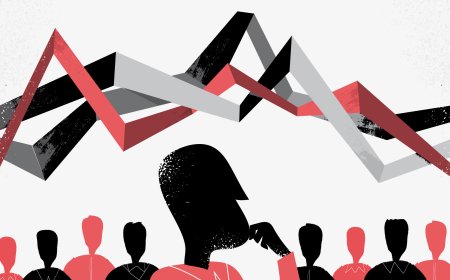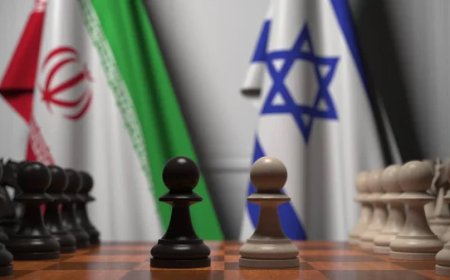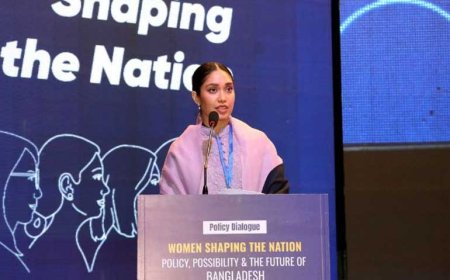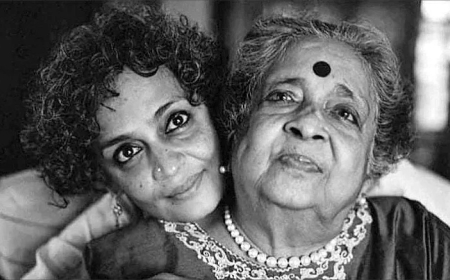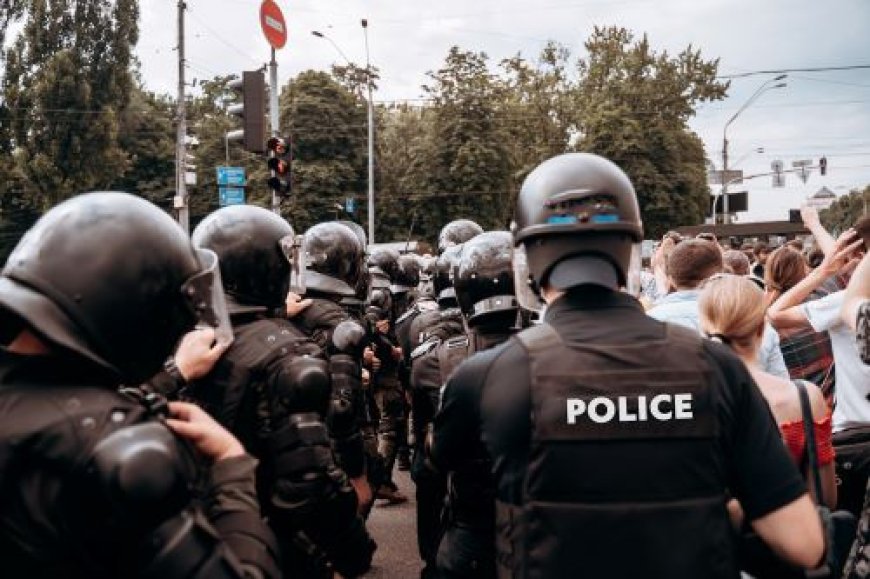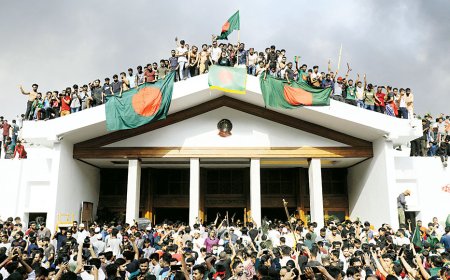NCP Marching with Maximum Visibility to Gopalganj Was an Unnecessary and Counterproductive Strategic Blunder
Provoking what was an entirely predictable response from AL activists and supporters in the stronghold of the deposed political regime amounted to a de facto open invitation for confrontation
Not everyone may agree with the opinions outlined below, but the core warning remains irrefutably applicable to the direction in which Bangladesh is heading: unless political parties reform their grassroots organizational and operational cultures, the country will continue to witness a rinse and repeat of what it experienced under the AL -- only with a different set of actors.
The structures and behaviours of partisan activists will remain unchanged -- more violence between adversaries, less evidence-informed discourse on matters of public policy, a continued drift from advancing the national interest, and an innate reliance on muscle over merit. The ultimate losers will be the general public, who unfortunately appear exhausted and cynical with the new status quo as well.
NCP -- led by student leaders of the 2024 mass uprising -- recently launched a long march to Gopalganj, part of a continuing series of nationwide mobilizations the party has been staging in recent weeks.
Gopalganj is no ordinary location. It is AL’s political heartland, home to the Sheikh family’s ancestral residence and the burial site of Bangabandhu Sheikh Mujibur Rahman. In a district like Gopalganj, most residents are almost certainly still aligned with AL.
The decision to stage a march there, publicly declared in advance and accompanied by palpable fanfare on social media, was both irresponsible and overtly provocative -- particularly at a time when the law and order situation remains fragile. The reality is that AL activists were never going to remain passive as those who removed their party from power marched into a location of such symbolic and emotional weight.
After the resignation of military dictator General Hussein Mohammad Ershad, he remained both an active and consequential participant in Bangladesh’s electoral politics. In every election he contested from 1990 until his death, Rangpur -- his home district -- continued to deliver victories, often across multiple constituencies.
That reality served as a reminder: autocrats, however unpopular nationally, often retain loyal pockets of support, principally in the regions they hail from.
Gopalganj must be understood in the same light. Over the past 15 years, it came to represent -- in the minds of most -- the entitlements and extravagances associated with AL rule. The perception that residents of Gopalganj benefited disproportionately under AL only hardened public resentment elsewhere.
Following the 2024 uprising, it is also probable that many AL figures sought refuge there, viewing it as one of the few remaining safe havens. To assume that tensions would simply dissipate, or that an NCP-organized event could proceed there without incident, was wildly naive.
The right to assemble or organize rallies anywhere in Bangladesh is not in question -- that much is beyond debate. But a mature political party understands the importance of timing, geography, and historical context. It acts with a sense of responsibility and situational awareness.
At present, NCP is not demonstrating the wisdom of a party prepared to govern. Instead, it is projecting the impulsiveness of a youth-led and categorically unseasoned entity -- still trapped in a posture of revolt rather than focused on the complex task of building a broken and battered Bangladesh.
Violence followed -- involving AL activists. The incident, including the attacks on NCP activists, is unequivocally condemnable, but it is certainly not unexpected. It is reasonable to assume that NCP was fully aware of both the likelihood and potential scale of such a reaction.
On the contrary, the decision to march to Gopalganj signals a calculated move on the part of NCP to provoke a violent response from a defeated force. What is now unfolding -- and may continue to unfold in the coming months -- indicates a deliberate and coordinated effort to inflame partisan tensions in parts of the country, or around issues where AL still maintains some degree of presence or territorial footing.
Consider a hypothetical scenario. If BNP had ruled Bangladesh with an authoritarian grip for fifteen years, and following its ouster, NCP marched to Bogra -- a BNP stronghold and the home district of General Ziaur Rahman -- the outcome would have likely been similar: confrontation, outrage, and violence.
These dynamics are not unique to Bangladesh. In Bolivia, following the resignation of longtime president Evo Morales in November 2019, the interim government deployed police and military forces into regions like El Alto and Cochabamba -- areas where Morales and his party retained strong popular support.
In the days that followed, clashes between protesters and security forces resulted in more than 30 deaths. The attempt to assert authority in areas or regions still aligned with the ousted regime did not restore stability. It inflamed public anger, fueled deadly unrest, and cast doubt on the credibility of the transition itself.
Bangladesh now risks heading down a similar path -- where asserting power in a former stronghold of a deposed regime provokes hostility, rather than allowing stability to incrementally emerge through a sound electoral process.
There is concern -- not unfounded -- that Bangladesh could once again witness scenes resembling the extrajudicial mob-style attack on the Sheikh family’s residence on Road 32 in Dhanmondi. The destruction of Bangabandhu’s home -- a site intertwined with the arc of both pre- and post-liberation history -- was covered by international media and widely condemned.
Among those with a nuanced and informed understanding of how politics in Bangladesh functions, including critics of Mujib and the AL writ large, there was a shared view that the incident clearly crossed a line. Future attempts to disrupt or desecrate Bangabandhu’s ancestral home in Tungipara cannot be ruled out.
These actions raise legitimate questions about whether they are occurring with the quiet consent or passive tolerance of the interim government. The situation becomes more revealing when one observes that NCP is now portraying BNP as a mirror image of AL -- as if BNP alone is responsible for the deterioration of law and order.
Yet NCP and Jamaat activists -- much like BNP activists -- have also engaged in a pattern of behaviour once synonymous with AL: land-grabbing, extortion, and rent-seeking through muscle power. To ignore this while assigning blame elsewhere is not sincere.
A dangerous narrative is being designed by a handful of actors, including NCP -- that Bangladesh is not ready for elections in the short run due to political instability. But in advancing this storyline, the root causes of unrest are being masked by those intent on postponing the electoral timeline.
The result is the opening of a window not necessarily for sympathy, but for a kind of reconsideration -- a creeping question of whether things were, in some ways, more stable under AL, despite its fifteen years of repressive, one-party rule.
If a free, fair, and participatory election were to be held by early next year, as the Chief Adviser has indicated, NCP will likely struggle to win more than a handful of seats in parliament. This creates an incentive to trigger unrest, escalate tension, and push for an election delay.
But in doing so, public trust is being eroded -- even if that erosion is not immediately visible, perhaps concealed by the alternate realities taking shape within social media echo chambers.
Social media is now running unchecked with disinformation, misinformation, fake news, bots, and the full machinery of manipulated digital narratives -- narratives that increasingly seem constructed with a single aim: to delay the upcoming election in favour of a few stakeholders.
Social media posts and marches involving segments of Dhaka-based university students -- mostly men -- do not reflect national sentiment. Gen Z does not equate to NCP. Nor is support uniform across the 18 to 30 age group -- rural students and working-class youth outside formal education may not think or vote like their urban peers.
Political preferences also vary by gender, income level, and other factors, including familial voting histories.
Beyond Gen Z, small and medium-sized entrepreneurs and older generations with a memory of how politics actually functions in Bangladesh are also unlikely to endorse NCP.
Logic alone suggests that the plurality of Bangladesh is not prepared to hand over the reins of a battered state apparatus to a group of novel activists with no parliamentary experience and no grounding in governing something as complex as the Bangladeshi state -- and certainly not at what is the country’s most precarious moment since 1971. Opinion polls that have been conducted over the past year seem to bear this out.
As the disconnect between public sentiment and political behavior grows, the moral foundation of the uprising is beginning to erode. That is regrettable. When NCP leaders call for the burial of Mujibism, it is interpreted by many not as a principled ideological position, but as a maneuver to justify delaying elections.
The public must remain attentive. Further provocations in Gopalganj or acts of desecration targeting sites associated with the AL would yield national and international backlash. In such a scenario, AL -- expelled from government for their criminalities -- stands to gain the most. The legitimacy of the uprising that ousted a repressive regime risks being undermined.
Opposing AL and Mujibism remains a democratic right. But such opposition must be exercised through policy-driven politics or intellectual discourse -- not inflammatory street tactics, especially not by those now close to the levers of state power.
The interim government, for its part, has done little to dispel the gradually plausible perception that it is either operating under the direction of NCP or unwilling to rein in its growing influence.
The Gopalganj incident also heightens concerns about the preparedness and competence of the state apparatus -- specifically law enforcement agencies and the armed forces -- in maintaining order during politically sensitive moments.
It did not require sophisticated intelligence to foresee that pro-uprising forces attempting to stage events in the one district where allegiance to Sheikh Hasina remains robust would provoke unrest. The absence of preventive measures, contingency planning, or reinforcement raises questions about whether the interim government understands the urgency of its public safety mandate.
What unfolded in Gopalganj was not merely a security lapse -- it was yet another indication of ineptitude and a lack of foresight on the part of what can best be described as a weak administration.
Most informed citizens will agree on the need to critique what AL became by 2024. Bangabandhu himself is not above criticism. BNP, too, can and should be criticized -- but through political means and within parliamentary norms.
If politics returns to a pattern of retaliation, conspiracy, and counter-conspiracy, the fall of Sheikh Hasina will be viewed not as the end of a dark chapter, but as a footnote in a book that continues in the same theme.
What is needed now from NCP is more responsibility, maturity, and political judgment. There is no room left for adolescent theatrics -- and if NCP intends to delay the election, it risks being viewed as an undemocratic force in its own right.
Mir Aftabuddin Ahmed is a Canada-based public policy columnist, with over 140 published articles across Bangladeshi and Canadian media platforms and policy publications. He works as a Policy Development Officer with the City of Toronto and can be reached at [email protected]. The views expressed in this article are his own.
What's Your Reaction?















